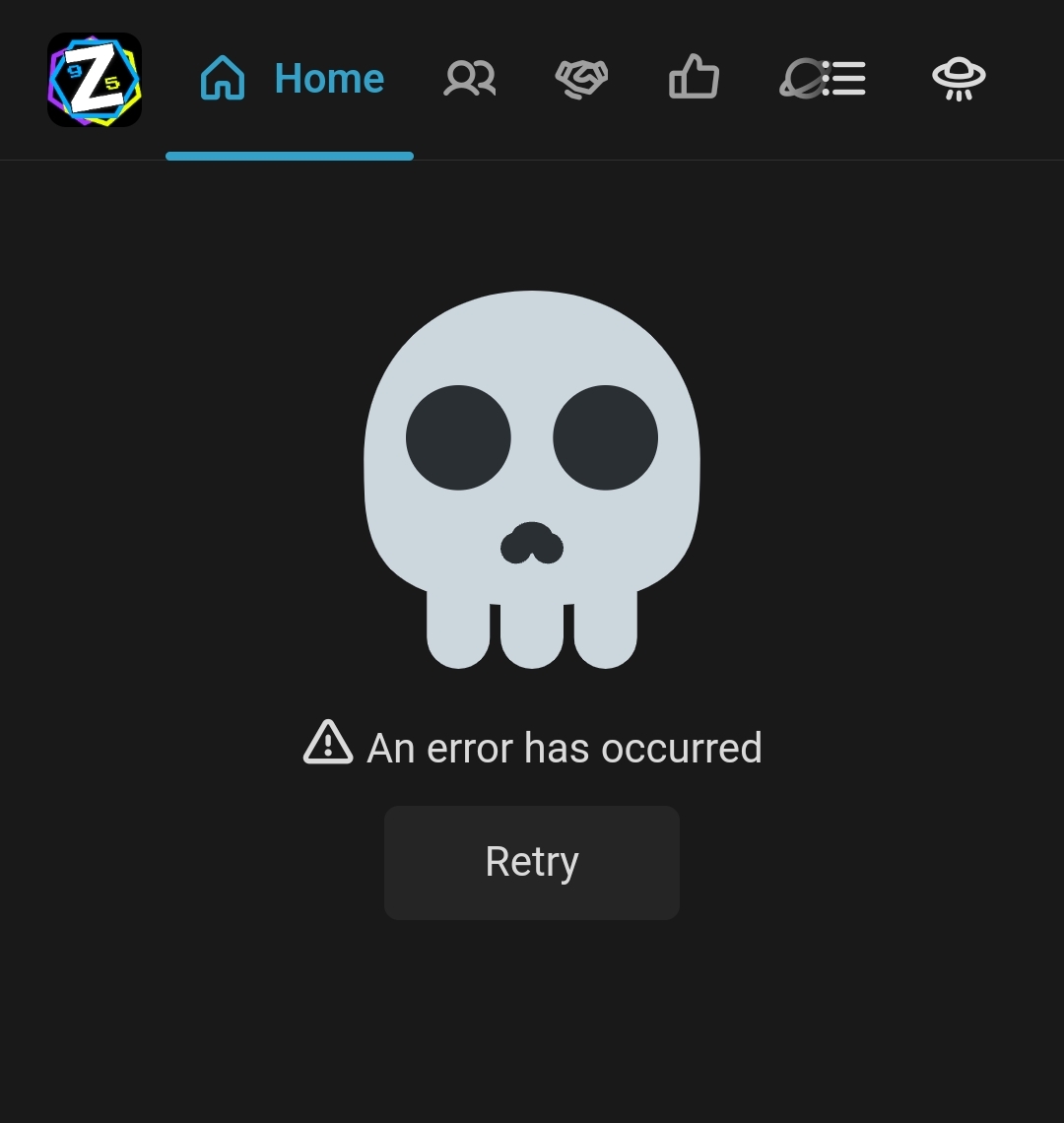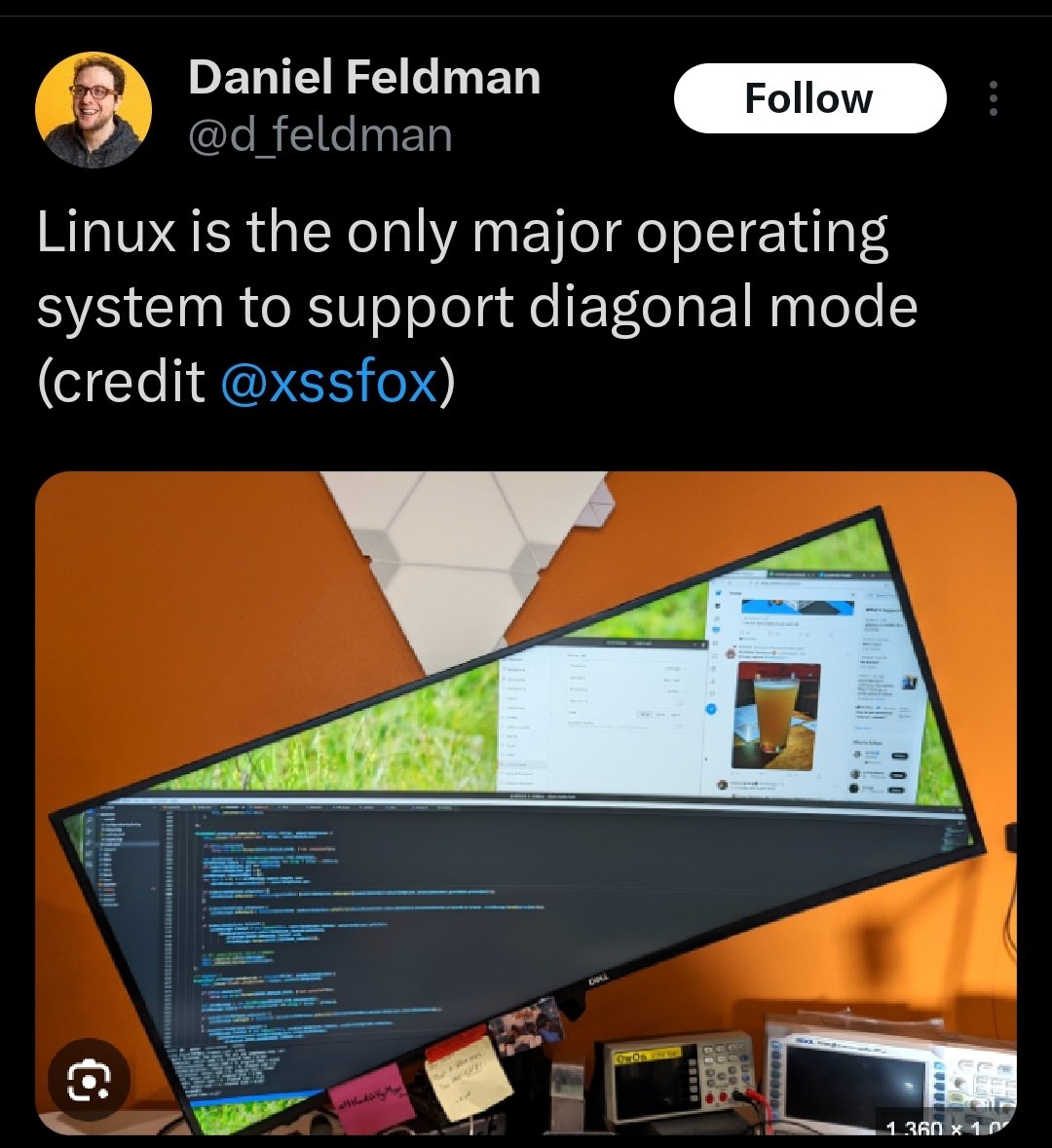Worth noting that Linux Mint Debian Edition exists and is based directly on Debian instead of Ubuntu. They starting publishing it specifically because the Linux Mint team doesn't like the direction Ubuntu is heading in with snaps. Not sure how good it is as I haven't tried it in a while (and don't really use regular mint either).
Zangoose
The joke in the meme is John Cena laughing at JKR being in the Epstein files, though. That's not a joke, it's disinformation.
But JKR is objectively "in the Epstein files." It's not clear whether she was directly or intentionally involved, but her name is absolutely present in the files. This meme isn't misinformation at all.
Honestly I'd consider using this in combination with NixOS just for the flatpak support
Xlibre is backed for the most part by the singular maintainer that was still willing to work on X11 who got kicked out for being too toxic and breaking existing code. For what it's worth, it also explicitly used MAGA language in its README for a while.
Phoenix is intended to allow for support of legacy software/DEs and provide a more modern/maintainable version of X11. It isn't trying to compete with Wayland, it's trying to live alongside it for environments that won't or can't move to Wayland. It also technically won't be a complete X11 implementation, as it's ignoring older portions of the protocol.
Neither option addresses the elephant in the room: The X11 protocol is still fundamentally broken in a lot of aspects. Multi-monitor support, especially when monitors aren't the same resolution, refresh rate, or physical size, is broken at a fundamental level. It will never work even as well as Windows, which is already an incredibly low bar to clear.
Wayland is slow moving, sure, but it is a much more stable base to work with than Xorg ever was. From a security, modularity, and extensibility standpoint, Wayland is a lot better. There is a reason most of the Xorg team developed a completely new protocol instead of just reimplementing X11 themselves.
It can be hit or miss, really depends on the bank. I'm in the US and mine worked fine after I enabled a compatibility setting in the app list, but that's kind of anecdotal. I think there is a community compatibility list somewhere of banking apps that work/don't work on GrapheneOS.
If you were able to install Bazzite then installing graphene shouldn't be any harder than that. It has a web-based installer that was pretty easy to use as long as you follow the instructions.
The pixel 8 will be supported through the end of 2030 (graphene support follows the same timeline as Google because of firmware-level updates that are still needed from them) so you could still get a lot of use out of it.
GrapheneOS my beloved
Not just designed, lawnchair is a fork of the AOSP launcher which is why they look so similar. It's also partially why they have a comparatively slow development cycle, because they spend a lot of effort rebasing whenever AOSP's launcher has significant changes.
Lawnchair doesn't have a paid version, it's open source
It's a kernel compile parameter but most Linux distros have it turned off by default 😔
The only time I've ever seen it turned on was on my raspberry pi
They can also use live location data in an emergency situation,also using a court ordered subpoena.
What qualifies as an "emergency situation"? I imagine that definition could be stretched pretty thinly






Presumably just for transparency in case humans down the line went looking through closed PRs and missed the fact that it's AI.